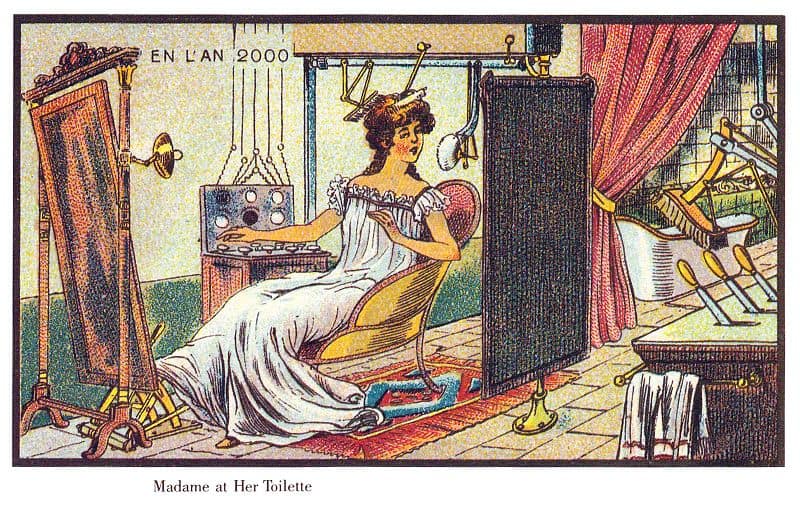'The future' needs a new definition
The strong link between 'the future' and technology is old-fashioned and limiting.

Whenever the term '...the future...' is used - you can bet your dwindling Bitcoin stash on the fact that what follows these words, will almost always be a fictional narrative strongly-themed with ideas and stories of outlandish technological innovations.
The construct of 'the future' and technology advancement are doggedly linked, which in popular culture and literature has always been the case.

'The future' is a place where, by cultural default, we are given special permission to imagine how strange new machines and artefacts of science will magically solve our problems and make everyday reality ultra-convenient and free from the historical grind of physical human labour.

This is a huge problem however, because what it disallows is a space and agency for our minds to imagine future states that include images other than ones dominated by technology.
As important and exciting as it is, 'the future' will undoubtedly not be colonised by technology alone, but the steer dominance of technology images in our collective futures consciousness is literally crowding out vital mental bandwidth for other, more human-centric themes, to be entertained.
The danger of this is that as we continue to ask questions and explore how things can be improved in our world, our innovative thoughts are hijacked by solutions that are not necessarily the right ones, but rather the ones that are most consciously prevalent.
The future of food isn't only blockchain. The future of work isn't automation alone. The future of South Africa isn't just the Fourth Industrial Revolution.
'The future', futurists and foresight are not a place, people and applied forward-orientated practices that relate to the emergence of new technologies and technological artefacts alone.
Continuing to think in this rather lazy and predictable way is ironically actually old-fashioned and a decoupling is urgently needed if futures more suited to the betterment of society and people is to be imagined.

